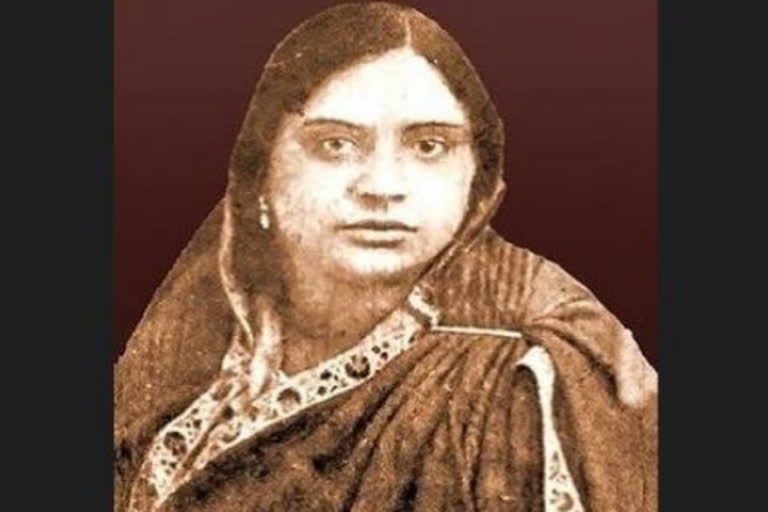Hyderabad: Kuntala Kumari Sabat, whom President Murmu quoted during her maiden speech today, was one of the very few women poets who established prominence in India during India's freedom struggle. Highlighting how the Indian government has worked extensively for women empowerment in India, President Murmu on Tuesday recalled a poem by Sabat which indicated that Indian women are neither weak, nor inferior to other women across the world. She was addressing her first joint session of the parliament ahead of the annual Budget session 2023.
Primarily popular as an Odia poetess, Sabat wrote poems that mostly revolved around the freedom struggle and women's empowerment in an era when women were barely considered equal to men in Indian society. Shattering the glass ceiling, Sabat developed an identity of her own during the freedom struggle as a woman of element, who could think, write and do things to free the nation from the shackles of the Britishers.
Extraordinarily talented at everything she did, Sabat was no less than a polymath with the abilities of not just a poetess but also of a physician, writer, editor, freedom fighter, leader of the nationalist movement and social worker. She was honored with Utkala Bharati in 1925 at a very young age.
With her poems and writings, Sabat became the voice of millions of women and youth. Her writings worked as a driving force in attracting more youngsters towards the freedom struggle. Sabat's poems were mostly influenced by the ideologies of national leaders like Mahatma Gandhi and Jawaharlal Nehru, but not without a tinge of feminism.
Through her poems, Sabat gave a wake-up call to the women of Odisha to join the freedom struggle. She also expressed her concern for the downtrodden and socially unprivileged section through her writings. Attempts to tackle the rampant superstitions and inequality in society also found expression in her writings.
Kuntala Kumari Sabat was born on 8 February 1901 at Jagdalpur in Chhattisgarh where her father Daniel was posted as a physician. Her family had moved to Burma for a while, but because of some family problems, Kuntala along with her mother Monica came back to Odisha and studied in Khordha, and later in Cuttack.
After completing her primary schooling at Ravenshaw Girls school, she pursued her medical education in Cuttack. Thereafter she started her career as a lady physician. But she did not let her passion for writing mellow down. Greatly inspired by Gopabandhu Das, Sabat started composing poems in Odia as well as in English, Bengali and Hindi.
She died at the early age of 37 in 1938. Though she did not get a chance to directly participate in the freedom struggle, her writings reflect a strong sense of patriotism that inspires many even today, decades after India gained its freedom.



